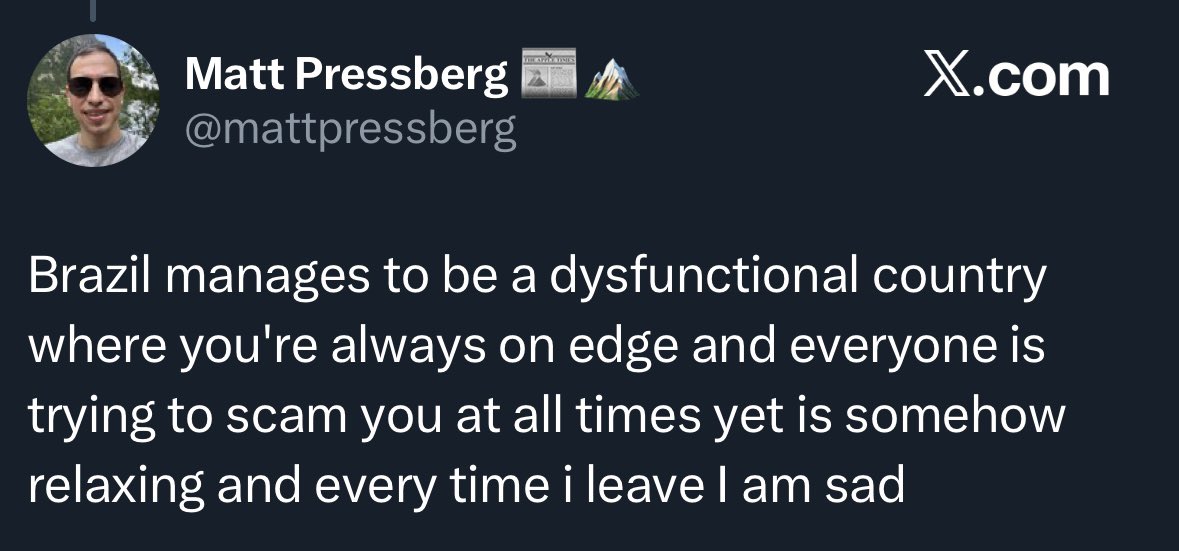AMERICAN MEDICAL STUDENT IN HAITI DESCRIBES WORKING WITH HAITIANS - A Thread 🧵
Haitians have been making the news yet again - A Short Thread once more re-sharing the Infamous Blog Post of a Medical Student’s Experience in Haiti about ‘How Haitians Think’ 🇭🇹
Haitians have been making the news yet again - A Short Thread once more re-sharing the Infamous Blog Post of a Medical Student’s Experience in Haiti about ‘How Haitians Think’ 🇭🇹

It has proven hard for me to appreciate exactly how confused the Haitians are about some things. Gail, our program director, explained that she has a lot of trouble with her Haitian office staff because they don't understand the concept of sorting numerically. Not just "they don't want to do it" or "it never occurred to them", but after months and months of attempted explanation they don't understand that sorting alphabetically or numerically is even a thing. Not only has this messed up her office work, but it makes dealing with the Haitian bureaucracy - harrowing at the best of times - positively unbearable.

Gail told the story of the time she asked a city office for some paperwork regarding Doctors Without Borders. The local official took out a drawer full of paperwork and looked through every single paper individually to see if it was the one she wanted. Then he started looking for the next drawer. After five hours, the official finally said that the paper wasn't in his office.

Part of it is Haitian education. Even if you're one of the lucky ones who can afford to go to school, your first problem is that the schools can't afford paper: one of our hosts told stories of Haitian high schoolers who were at the level of Western 5th graders because they kept forgetting everything: they couldn't afford the paper to take notes on!
The other problem is more systemic: schools teach everything by uninspired lecture even when it's completely inappropriate: a worker at our camp took a "computer skills" course where no one ever touched a computer: it was just a teacher standing in front of the class saying "And then you would click the word FILE on top of the screen, and then you'd scroll down to where it said SAVE, and then you'd type in a name for the file..." and so obviously people come out of the class with no clue how to use an actual computer. There's the money issue - they couldn't afford a computer for every student - and a cultural issue where actually going to school is considered nothing more than an annoying and ritualistic intermediate step between having enough money to go to school and getting a cushy job that requires education.

There are some doctors and nurses, who are just as bad - though none at our compound, which is run by this great charity that seems to be really on top of things. We heard horror stories of people graduating from nursing school without even knowing how to take a blood pressure - a nurse who used to work at the clinic would just make her blood pressure readings up, and give completely nonsensical numbers like "2/19". That's another thing. Haitians have a culture of tending not to admit they're wrong, so when cornered this nurse absolutely insisted that the blood pressure had been 2/19 and made a big fuss out of it. There are supposed to be doctors who are not much better, although as I mentioned our doctors are great.

But I was going to talk about the patients. I don't really blame the patients. I think they're reacting as best they can to the perceived inadequacies around nurses and doctors. But they seem to have this insane mindset, exactly the opposite of that prevailing in parts of the States, where medicine is good. In particular, getting more medicine of any type is always a good thing and will make them healthier, and doctors are these strange heartless people who will prevent them from taking a stomach medication just because maybe they don't have a stomach problem at this exact moment. As a result, they lie like heck. I didn't realize exactly how much they were lying until I heard the story, now a legend at our clinic, of the man who came in complaining of vaginal discharge. He had heard some woman come in complaining of vaginal discharge and get lots of medication for it, so he figured he should try his luck with the same. And this wasn't an isolated incident, either. Complaints will go in "fads", so that if a guy comes in complaining of ear pain and gets lots of medicine, on his way out he'll mention it to the other patients in line and they'll all mention ear pain too - or so the translators and veteran staff have told me.
I haven't gotten any men with vaginal discharges yet, but many (most) of the patients I've seen have just complained of pains in every part of their body and seen if any of them stick. A typical consultation will be a guy who comes in complaining of fever, coughing, sneezing, belly pain, body pain, stomach pain, and headache. The temperature comes back normal (not that our thermometers are any good), abdominal, ear, and throat exams reveal nothing, and we send them away with vitamins and tylenol or maybe ibuprofen.

My cousin Samantha and my friend Charlotte, both of whom have come with us, have studied medical anthropology and think this is fascinating. I am maybe a little fascinated by it, but after the intellectual clarity of medical school, where every case has textbook symptoms that lead inevitably towards some clever but retrospectively obvious diagnosis, I'm mostly just annoyed.
Also, if I ask a question of the form "do you have X", people almost always answer yes. "Are you coughing?" "Yes." "Are you coughing up sputum?" "Yes." "Is the sputum green?" Yes." "Is the sputum coalescing into little sputum people who dance the polka on your handkerchief?" "Yes".
A depressing number of our patients have split into two categories: patients with such minor self-limiting illnesses that there's not much we can do for them, and patients with such massive inevitably fatal illnesses that there's not much we can do with them. There are a few who slip in between: some asthma patients, hypertensives, diabetics, people with UTIs and other bacterial infections, a man with serous fluid in his knee that my father drained for him - but they're depressingly few. And even when we can help them by, say, giving an asthmatic a month's worth of asthma medication, it's worrying to think about what happens when the month is up. Coming back to our clinic requires traveling on awful Haitian roads and waiting in line in the awful Haitian weather with two hundred other people and then hoping there's even a doctor who will see you, so I don't know how many people return for refills or what the effect of having to do so on quality of life must be.

To be honest I think a lot of what we're giving are placebos. And placebos have their uses, but here I think we have lost the comparative advantage to our competitors, the witch doctors, who can placebo the heck out of us. One of our translators' grandfathers is a voodoo priest, and he was describing some of the stuff he did. It sounded pretty impressive, although at least no chickens get harmed during any of our treatments.
But we have certainly helped a few diabetics, people with bacterial infections, and the like; and we're connecting a lot of kids with vitamins (not to mention stickers), so I do think we're doing a bit of good. My father loves working in Haiti and has made best friends with all the translators and is always going out into Port-au-Prince to see the sights and taste the social life. I think it's great for my education, great for my resume, and great to be helping people, but I will breath such a sigh of relief when I get back on that plane to the States.
But we have certainly helped a few diabetics, people with bacterial infections, and the like; and we're connecting a lot of kids with vitamins (not to mention stickers), so I do think we're doing a bit of good. My father loves working in Haiti and has made best friends with all the translators and is always going out into Port-au-Prince to see the sights and taste the social life. I think it's great for my education, great for my resume, and great to be helping people, but I will breath such a sigh of relief when I get back on that plane to the States.

Available at:
If you liked this Thread you may also like the Africa Resource Megathread - a compilation of similar stories and anecdotes from Africa web.archive.org/web/2018020111…
If you liked this Thread you may also like the Africa Resource Megathread - a compilation of similar stories and anecdotes from Africa web.archive.org/web/2018020111…
https://twitter.com/kunley_drukpa/status/1744017316231188749
• • •
Missing some Tweet in this thread? You can try to
force a refresh
















